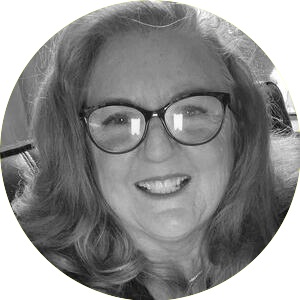Last updated on October 21st, 2024 at 02:53 pm

Dreamers often suffer in anguish in quiet moments with questions like Am I on the right path? Do I need to change course? Why am I procrastinating? Why am I so tired? Why can’t I motivate myself to do this? Why can’t I make money at this? Why can’t I be happy? What am I doing wrong? Should I just quit? Did I pick the wrong dream? How do you know? What are the signs?
Good lord. It’s no wonder that so many dreamers quit. But the universe tends to have great humor when you question parts of your dream life.
Early in my dream journey to become a writer, Simon & Schuster sent me the book Practical Genius: The Real Smarts You Need to Get Your Talents and Passions Working for You by Gina Amaro Rudan.
The inside cover reads, “Most people consider genius to be a gift, a ‘lightning bolt from the gods’ that strikes people like Einstein or Mozart, but not the rest of us. They see it as a quality, like creativity, that has a magical, exclusive, elusive connotation.”
“That is simply not true,” says Gina Rudan. “Every one of us has a capacity for genius. Anyone is capable of achieving something so extraordinary that it could change the game for you, your business, and every aspect of your life.”
In Practical Genius, Rudan shows you how to:
- Identify your genius.
- Express it in everyday life.
- Surround yourself with genius.
- Sustain genius for a lifetime of personal and professional satisfaction.
- Market your genius to others.
Duh-oh! Thanks, universe!
The book’s cover features a testimonial from marketing guru and best-selling author Seth Godin: “Positive, insightful, and generous, this book will go a long way in helping you realize that genius is a choice.”
The opening of Gina Rudan’s book begins with these 2 questions:
-
- Do you ever feel as though you are two separate people—the face you present at the office and your authentic self for the rest of your life?
- Do you feel as though there’s a whole set of your skills, talents, and assets that you’re not using every day because you’ve allowed what you do for a living to become who you are?
I’ve been there, lived that, and am still crawling out. In my article, Find Your Dream and Reinvent Your Life Purpose, I discussed how to do the research to figure out where your passions lie, or as Gina Rudan puts it, “where your genius is.” You find your dream by examining what you love doing and why it is important.
Rudan considers our passions “soft assets.”
She says, “For many of us, our form of play is our greatest passion, so don’t ignore play when considering your passion. Keith Carroll, the renowned leader of the play movement, believes we all can find our inner genius through play: ‘Once you find your source of play, let it be your life’s work so much so that no one, not even you, will be able to tell the difference between work and play.'”
She further asks us to use the notion of play as a prompt to think about our passions:
How would you spend your play time if you had 24 hours to live?
Where would that be if you were your fairy godmother and could wave a wand and transform you into your happiest, most joyful place? And what would you be doing there?
I’d be in my office at my own online publishing empire for women’s dream lives or at the beach with my son (see, there I go again). At my publishing business, I’d meet with the marketing team, look at stats, check in with the developers, and give the editors chocolate candy. I’d run into the beach waves with my son and his dogs.
We all have a passion for something. Come on, you know you do. What is it?
I love travel—I love the adventure of it. I also love writing and arranging content on a page, especially in a journalistic style. I love to dance, but I hardly ever do it anymore. I love public speaking and performing, but I don’t like memorizing my speeches. So, this is a difficult question for me, too.
Rudan says the last tip for identifying your passions is to think of one word that captures the be-all-end-all for you. Her word is “freedom.” Mine is “adventure.”
I remember feeling utterly stuck in my dream, questioning whether I was even on the right path. I had put so much energy into writing, only to feel like I was hitting a wall. Then, one day, after a spontaneous trip to the mountains—just to clear my head—I realized that the adventure itself recharged my passion. In that moment of play, I understood that adventure wasn’t just a side passion but a core part of my dream, and that’s why my dream couldn’t survive without it.
Gina Rudan’s book also guides you to harness your unique skills and passions to succeed. She defines “Practical Genius” as the intersection of one’s hard skills (professional abilities) and soft skills (personal passions and talents). She argues that finding and utilizing this intersection is crucial for success and fulfillment in life.
6 more takeaways from this book:
1. Build a Genius Network
Rudan stresses the importance of building a network of supportive and inspiring individuals. This network should include mentors, peers, and collaborators who can provide guidance, opportunities, and encouragement.
2. Leverage Technology and Trends
The book highlights the role of technology in amplifying one’s genius. Rudan encourages readers to stay updated with current trends, leverage digital tools to showcase their talents and connect with like-minded individuals.
3. Personal Branding
Rudan discusses the importance of creating a personal brand that authentically represents one’s genius. This involves consistent messaging across various platforms and being true to oneself.
4. Balance Passion and Profession
Practical Genius discusses balancing professional responsibilities and personal passions. Rudan provides strategies to integrate both aspects harmoniously, ensuring neither is neglected.
5. Take Action
The book emphasizes action over mere planning. Rudan provides practical steps and challenges to help readers move from identifying their genius to actively applying it in their lives.
6. Take a Self-Assessment
Use self-reflection exercises to identify your unique blend of skills and passions.
Ultimately, Practical Genius reminds us that dreamers’ questions aren’t signs of quitting but opportunities to dig deeper, reconnect with our passions, and harness our full potential. So, next time you’re stuck wondering if you’re on the right path, maybe it’s just a sign to rediscover your adventure—or whatever your “soft asset” may be—and let it fuel your next step forward.

Catherine Hughes is an accomplished magazine columnist, content creator, and published writer with a background as an award-winning mom blogger. She partners with companies to create captivating web content and social media stories and writes compelling human interest pieces for both small and large print publications. Her writing, which celebrates the resilience and achievements of Northern California’s residents, is featured in several magazines. Beyond her professional life, Catherine is passionate about motherhood, her son, close friendships, rugby, and her love for animals.
Note: Articles by Catherine may contain affiliate links and may be compensated if you make a purchase after clicking on an affiliate link.




